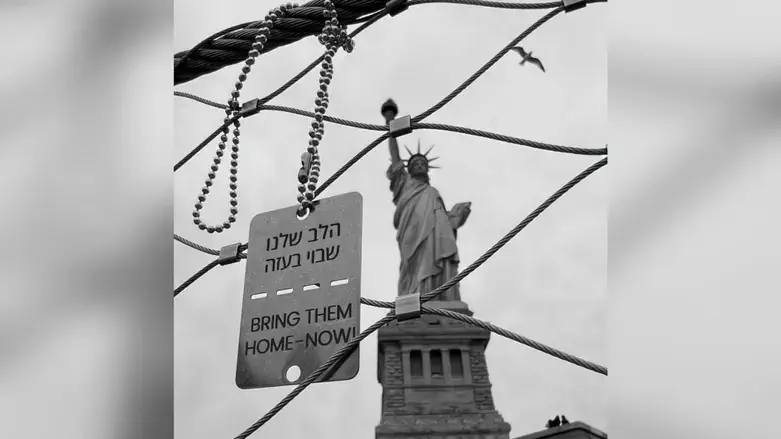
I was recently at a program that hosted a few family members of hostages. One woman was discussing her cousin.
She told over that it was confirmed by released hostages that her cousin has taken upon himself to now keep Shabbos. Because of this, he doesn’t use the flashlight that the Hamas captors gave him to use on Shabbos, instead remaining in the dark the whole time. It’s quite extraordinary that our brother in captivity has taken on darkness to sacrifice for the Creator.
This should awaken the great glory of G-d. Rabbi Eytan Feiner had a wonderful thought relating to the word Melech, king. Spelled backwards, Melech is kulam, everything. G-d is everything and we are all a part of Him. We encompass His success in this world through our personal and national victories.
We know the well-known Gemara (Bava Kamma 92a), that those who daven for others will have their prayers answered first. Praying for the physical and spiritual release of the hostages can bring us physical and spiritual salvation as well.
Dovid HaMelech famously says, “Lulei he'emanti lir'ot b'tuv Hashem b'eretz chayyim - Had I not the assurance that I would enjoy the goodness of the Lord.” The letters in the word lulei, had I only, spell Elul. Dovid here is expressing his confidence and belief in G-d.
Elul and Rosh Hashanah are times of belief and optimism for the curses of Ki Tavo are behind us and the blessings of the new year are upon us.
Please say this ancient (Gaonic period) prayer for hostages:
Acheinu kol beit yisrael, hanetunim b'tzara uvashivyah, ha'omdim bein bayam uvein bayabasha. Hamakom yeracheim aleihem veyotziem mitzara lirvacha, umi'afaila l'orah umishibud ligeulah, hashta ba'agala uvizman kariv.
Translation: For our brothers and sisters, the whole house of Israel, who are now in trouble or captivity, whether they are on the sea or on the dry land:
May the All-present G-d have mercy upon them, and bring them forth from trouble to freedom, from darkness to light, and from subjection to redemption, now, speedily and in a short time.
Note: Said after Monday and Thursday Torah readings in synagogue, but also said individually.